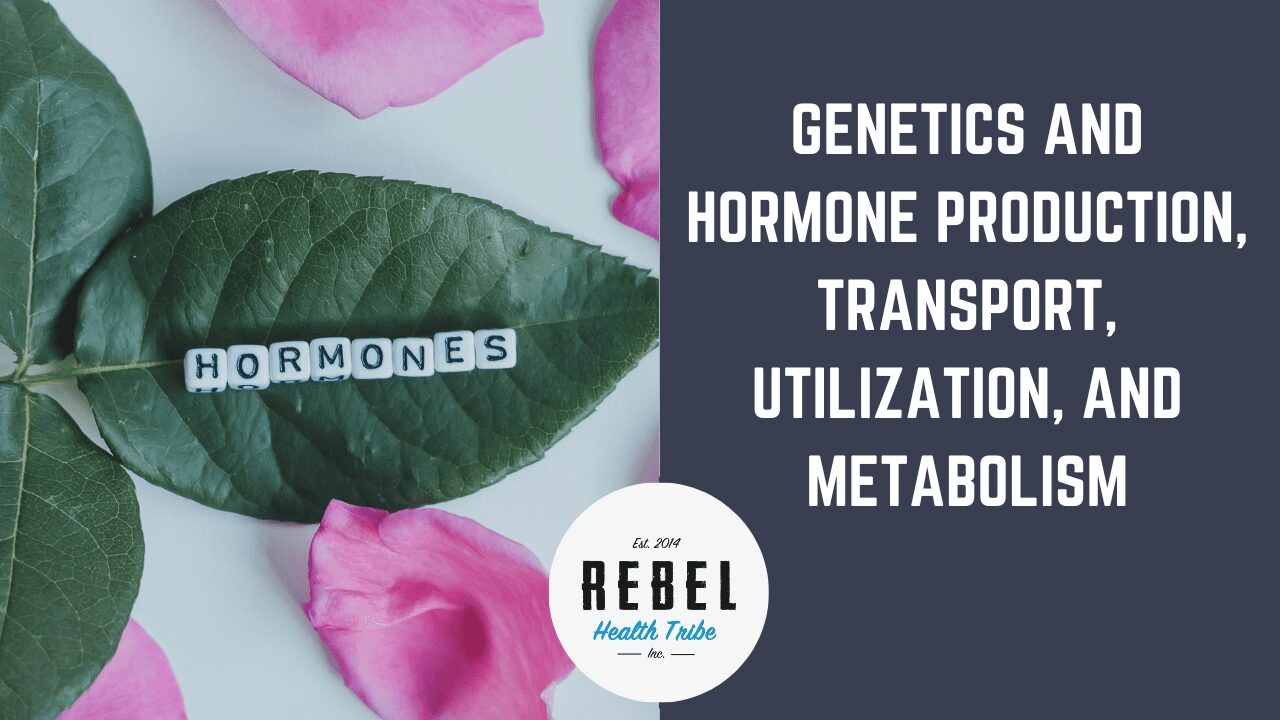
Genetics and Hormone Production, Transport, Utilization, and Metabolism
Our genetics play a larger role in our hormones than
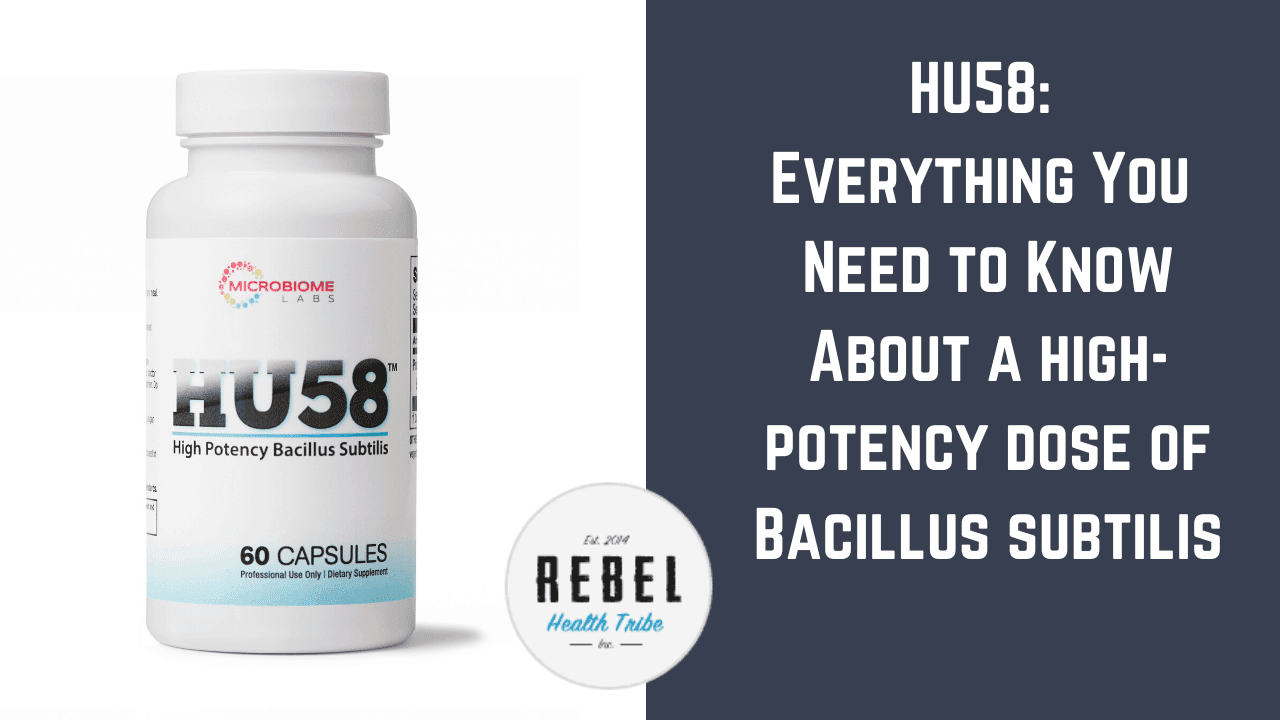

Our genetics play a larger role in our hormones than
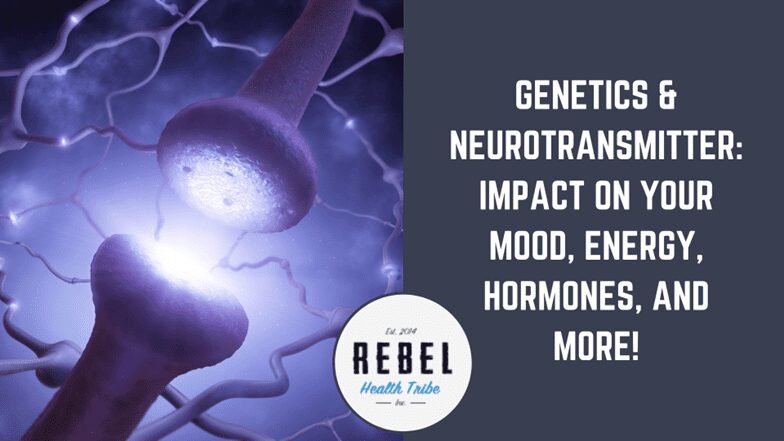
Have you wondered why an antidepressant didn’t work for you?

https://vimeo.com/821487331 If you’ve ever bought a detox kit off
HU58 ™ is a high-potency dose of Bacillus subtilis HU58 formulated to enhance the efficacy of MegaSporeBiotic ™. HU58™ can produce over 12 targeted antibiotics in the intestines, which makes it particularly effective in balancing intestinal microflora.
Bacillus spores are a natural part of the human environment and have been consumed by humans for thousands of years as part of the normal diet. Bacillus spores were abundant in the foods consumed by our ancestors because they use the soil as a vector to travel from host to host. Grains, meats, fruits, and vegetables all contained spores, which led to a symbiotic relationship between these critical, supportive organisms and humans.
For decades, Bacillus spores were believed to be soil-based organisms because they were often found in the soil. However, around 2008, researchers found that many Bacillus species could be identified in human feces and animal feces like broiler chickens and earthworms. This discovery led scientists to conclude that Bacillus spores prefer to live in the intestines of animals and simply use the soil as a vector to travel from host to host.1
However, modern food systems have sterilized food processing such that all fruits, vegetables, and meats are washed and treated with strong antimicrobials, which in turn eliminates our exposure to these beneficial organisms. As a result, human health has suffered dramatically, and rates of opportunistic infection continue to rise. As more and more researchers are beginning to understand, the gut microbiome is central to the health of the entire human body.
When gastrointestinal health declines, nutrient absorption decreases, gastrointestinal barriers are damaged, and low-grade inflammation begins breeding in the gut like a silent bomb. Without these spores present in daily life, the human immune system cannot function as effectively or control systemic inflammation.
[optin-monster-shortcode id=”dcxx2efqpedf8p3prrnz”]
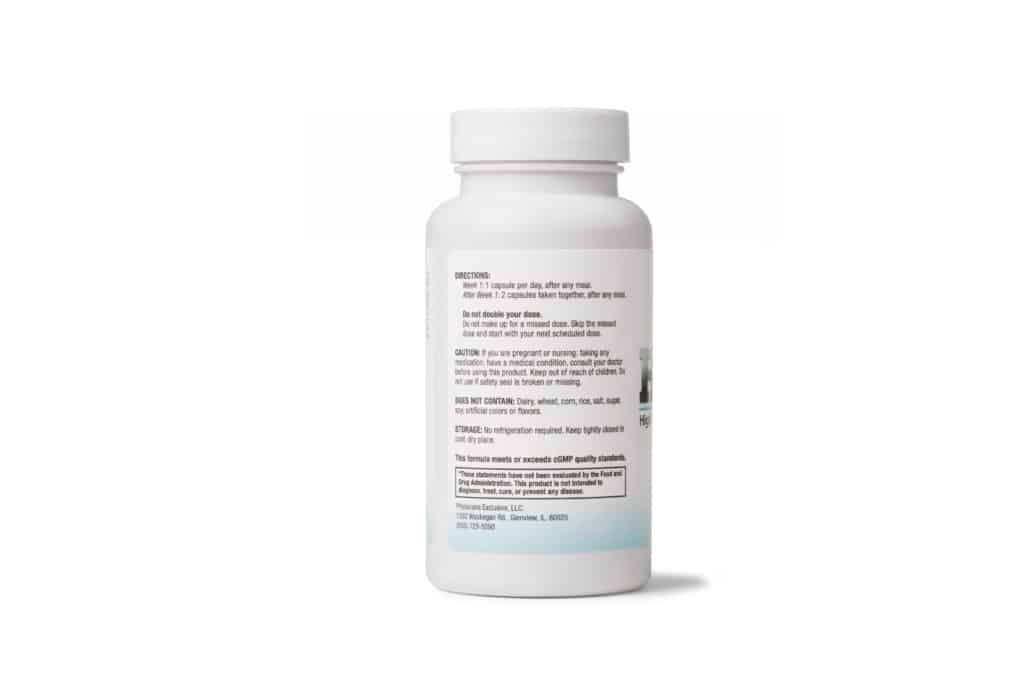
HU58 TM is a very simple, but effective product. Unlike the other probiotic offerings from Microbiome Labs, HU58 TM is a single-strain, high-potency adjunct probiotic that contains 10 billion CFU of Bacillus subtilis HU58 TM along with some cellulose from acacia trees in a vegetarian capsule. Bacillus subtilis HU58 TM was originally isolated from a healthy human gut at Royal Holloway University of London. The “HU” in the strain number comes from an abbreviation of Holloway University.
Bacillus subtilis has been well-studied for its ability to reduce pathogens in the gut, improve host immunity, prevent intestinal inflammation, and balance the gut microbiome.2
One of the reasons that B. subtilis is so effective against pathogenic bacteria is due to its ability to produce its own targeted antibiotics. Bacillus subtilis HU58 is known to produce over 12 antibiotics that have antimicrobial effects against broad spectrum of pathogens. These antibiotic substances are a natural part of the human antimicrobial defense system, which dramatically reduces the possibility of developing pathogen resistance or unwanted side effects.2 This natural protection allows for effective reconditioning of the gut microbiome without the destruction and disruption that accompanies broad-spectrum antibiotics.
Interestingly, the interaction between B. subtilis and some of the body’s immune cells, known as macrophages, has been shown to play an important role in training the immune system to recognize the difference between a true foreign invader and a neutral bystander, like dust or pollen. B. subtilis has also been shown to improve antibody response and T cell proliferation, which indicates that B. subtilis has the potential to improve both humoral and cellular immunity.2
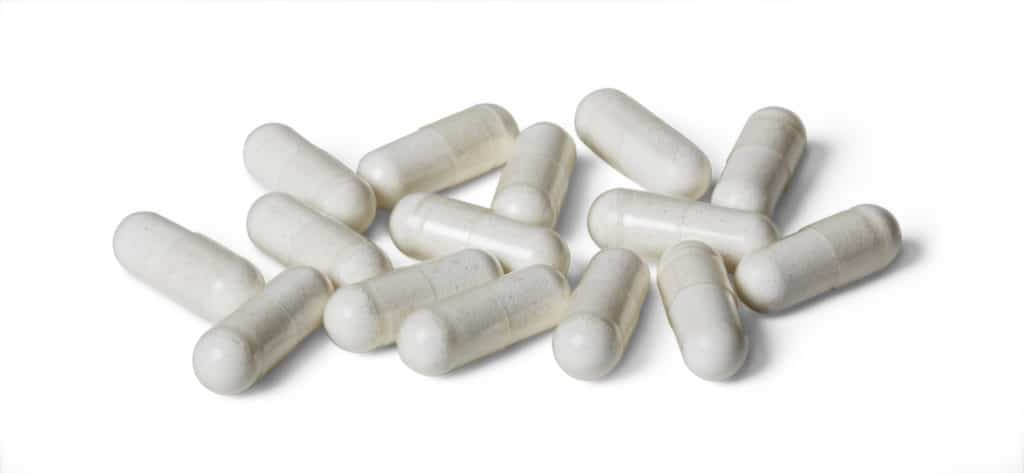
Before researchers realized the health benefits of Bacillus spores in humans, many studies showed significant improvements in intestinal health in animals. In multiple cases, B. subtilis was shown to improve intestinal barrier function by strengthening the tight junctions that stitch intestinal cells together and by reducing the expression of pro-inflammatory cytokines that are often responsible for intestinal damage.2 Damaged tight junctions act as weak links in the intestinal lining that can eventually break, opening the door to a condition known as leaky gut.
Bacillus subtilis HU58 TM has also been shown to ferment dietary starches into short-chain fatty acids (SCFA) such as butyrate, acetate, and propionate, which have anti-inflammatory effects in the gut.3 Butyrate is the major energy source for intestinal cells and has been studied for its role in nourishing the intestinal mucosa. In fact, studies indicate that butyrate may play a significant role in the prevention of colon cancer and amelioration of intestinal inflammation.4
As previously mentioned, B. subtilis is incredibly effective at controlling the overgrowth of gut pathogens without inhibiting normal microflora. Maintaining a low level of pathogens is key in supporting a diverse and healthy gut microbiome. However, the microbial impact of HU58 TM does not stop there. B. subtilis has also been shown to increase the abundance of keystone species like Lactobacillus species.2 By increasing more of the beneficial bacteria and controlling the harmful bacteria, B. subtilis HU58 essentially acts as a manager of the gut microbiome, restoring balance to the microbial populations and making sure that everything is running properly.
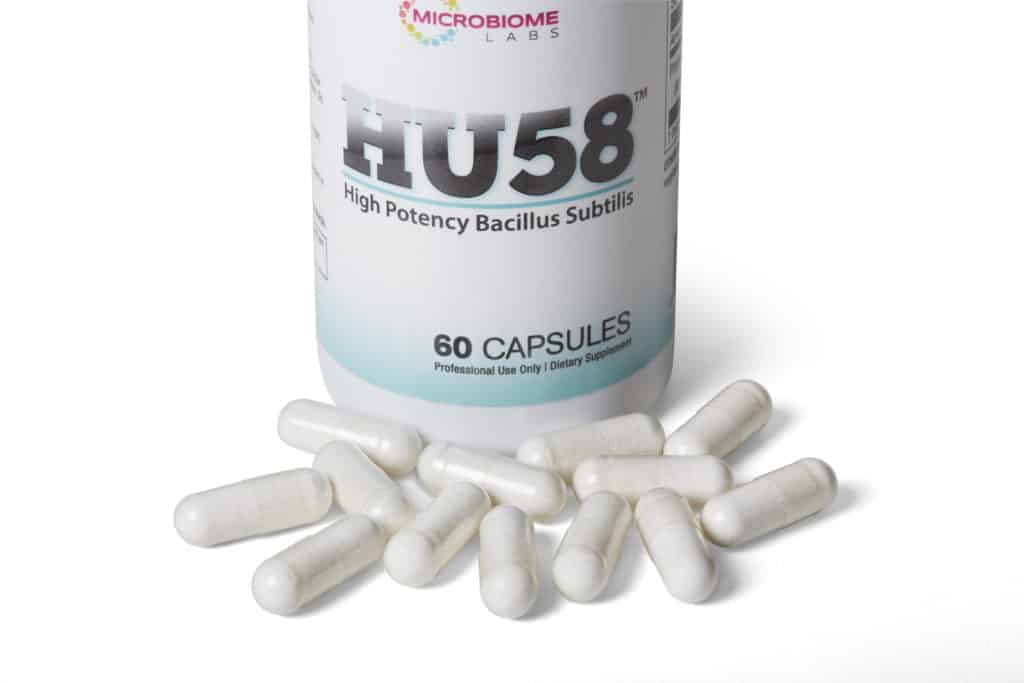
HU58 TM was used in an open-label study to evaluate the impact of HU58 TM on the immune system in healthy adult individuals. Eighteen adults were given 2 capsules of HU58 TM daily for 8 weeks, and pro-inflammatory markers were measured at the 1st, 2nd, 4th, and 8th week of the trial. The study results demonstrated a 45% reduction of pro-inflammatory marker IL-6 and a 55% reduction of pro-inflammatory marker, TNF-α.6
Interleukin-6 (IL-6) is a pro-inflammatory marker that has been shown to play a pathological role in chronic inflammation and autoimmunity when continually produced at high levels.7 TNF-α is another pro-inflammatory marker that triggers the onset of intestinal inflammation in inflammatory bowel diseases, depression, acute pancreatitis, and more, through the weakening of tight junction proteins.8-11 An overabundance of TNF-α can cause tight junctions to loosen up between intestinal cells, creating a more permeable intestinal lining, also known as leaky gut, that allows unwanted toxins to enter circulation and breed systemic inflammation.
The findings of this study suggest that HU58 TM could play a powerful role in strengthening the human immune system and protecting against the systemic inflammation that underlies chronic disease.
Autoimmunity
Colitis
Gut infections
Hepatic encephalopathy
Inflammatory Bowel Diseases (IBD)
Using HU58 TM in combination with MegaSporeBiotic TM enhances the ability of these probiotic spores to crowd out unfavorable pathogens that may be growing out of control. This can often times be less damaging to the gut microbiome than taking harsh antimicrobials.
Week 1: Take 1 capsule per day with any meal.
Week 2: Take 2 capsules together with any meal.
*HU58 can be taken at the same time as MegaSporeBiotic TM or with a different meal.
HU58™ is most effective when taken with a meal, but it will not cause an upset stomach if taken without food. The amino acids and carbohydrates in food can help the spores move from their dormant (spore state) to their active (vegetative state) form in the GI tract, so it is ideal to take HU58™ with a meal. Because the encapsulated probiotics are in their spore form, they do not need the capsule in order to survive digestion. For this reason, the capsules can be pulled apart, and the powder can be mixed into nearly any food or drink for convenience. HU58™ is temperature stable, so it can even be mixed into hot tea, coffee, or soup. There is no real taste impact of the powder, which should make it easier to administer to children.
HU58™ is safe to use while pregnant or nursing.
In order to better recondition the gut microbiome, HU58 TM can be taken alongside MegaSporeBiotic TM and/or RestorFlora TM to enhance the antimicrobial effects of the Bacillus spores. HU58 TM can also be taken alongside MegaPreBiotic TM and MegaMucosa TM in accordance with the Total Gut Restoration system. HU58 ™ can also be taken with digestive enzymes, betaine HCl, antibiotics, and even activated charcoal.
The recommended time to stay on the full dose of HU58 ™ will vary by individual, but there is no known upper limit or contraindications to taking HU58 ™ at the full dose indefinitely. Due to the transient nature of Bacillus probiotics, long-term use is suggested, but daily use may not be necessary for maintenance. HU58 TM may be taken indefinitely at the full recommended dose or as needed during times of acute infection.
There are no real contraindications for the use of HU58 ™. However, it’s important to understand that this probiotic is a powerful immune modulator. New evidence suggests that autoimmune conditions are the result of an immature and untrained immune system, rather than an overactive immune system, but anyone taking immunosuppressant medications should speak with their physician before taking HU58 ™ in order to weigh the benefits.
If you get fatigued, flushed, or foggy after eating, HistaHarmony,...
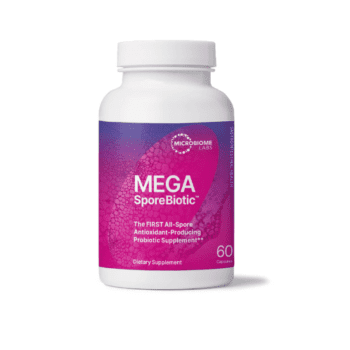
MegaSporeBiotic™ is a 100% spore-based, broad-spectrum probiotic shown to be...
MegaSporeBiotic™ Gummies are a 100% spore-based proprietary probiotic blend that...
MegaMucosa is the first complete mucosal support supplement of its...
An Exclusive Course with 10 Years of Microbiome
If you’ve ever wanted all of Kiran’s best
The toxicity and Detoxification Masterclass covers a wide
19 Leading Experts Share Cutting-Edge Science, Effective Practices,
Autoimmune Masterclass brings together 17 of the world’s
If you get fatigued, flushed, or foggy after...

MegaSporeBiotic™ is a 100% spore-based, broad-spectrum probiotic shown...
MegaSporeBiotic™ Gummies are a 100% spore-based proprietary probiotic...
MegaMucosa is the first complete mucosal support supplement...
An Exclusive Course with 10 Years of Microbiome Knowledge Build Your Resilient Gut: Microbiome & Beyond with Kiran Krishnan is the
If you’ve ever wanted all of Kiran’s best content in one place, here they are! These are the exact trainings
The toxicity and Detoxification Masterclass covers a wide array of topics with the following guests: 1. Lara Adler, Environmental Toxins
19 Leading Experts Share Cutting-Edge Science, Effective Practices, and Clinical Strategies to Optimize Brain & Nervous System Health in Kids